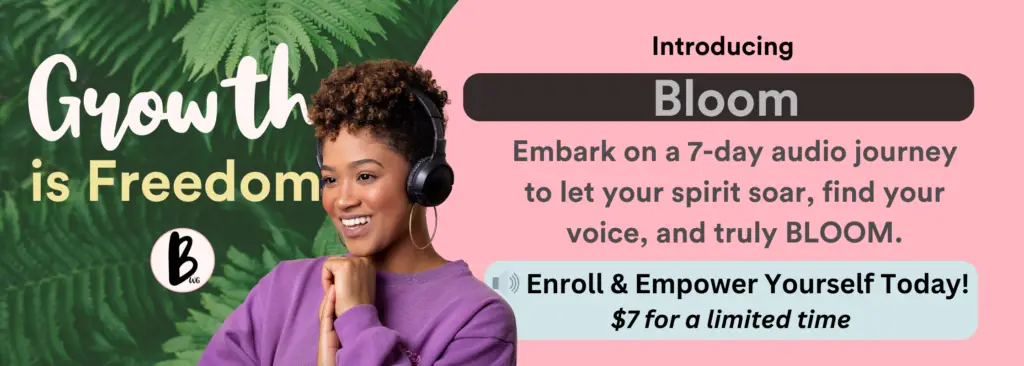Financial literacy is the ability to understand and manage money. It includes skills like budgeting, saving, and investing. For Black women, financial literacy is crucial. It helps them overcome economic barriers and build a stable future. This article aims to guide Black women on their financial journey by providing practical advice and resources.
Table of Contents
Key Takeaways
- Financial literacy empowers Black women to make informed money decisions.
- Understanding historical and cultural contexts can help overcome financial barriers.
- Building a strong financial foundation starts with budgeting and saving.
- Investing is key to wealth building and securing a financial future.
- Teaching financial literacy to the next generation creates lasting change.
The Importance of Financial Literacy for Black Women

Understanding Financial Literacy
Financial literacy means knowing how to manage your money. This includes budgeting, saving, investing, and understanding credit. Being financially literate helps you make smart money choices and avoid common pitfalls. For Black women, this knowledge is crucial for achieving economic stability and independence.
The Impact of Financial Literacy on Black Women
Financial literacy can change lives. It empowers Black women to take control of their finances, build wealth, and plan for the future. With the right knowledge, Black women can overcome financial challenges and create a secure financial foundation. This is especially important given the historical and cultural barriers that have limited access to financial education.
Why Financial Literacy Matters
Financial literacy matters because it opens doors to opportunities. It helps Black women navigate the financial system, access resources, and make informed decisions. Understanding financial concepts can lead to better job opportunities, higher income, and the ability to support families and communities. At Black by God, we champion black business and financial literacy as twin pillars of economic empowerment.

Historical and Cultural Contexts Affecting Financial Literacy
Historical Barriers to Financial Literacy
Historically, Black women have faced numerous obstacles in gaining financial knowledge. Systemic racism and segregation limited access to quality education and economic opportunities. These barriers have had long-lasting effects, making it harder for Black women to build wealth and achieve financial stability.
Cultural Influences on Financial Behavior
Cultural factors also play a significant role in shaping financial behaviors. In many Black communities, there is a strong emphasis on supporting family and community, which can sometimes lead to financial strain. Additionally, the lack of representation in financial services can make it difficult for Black women to find advisors who understand their unique challenges.
The Role of Community in Financial Education
Community support is crucial for improving financial literacy among Black women. Local organizations and churches often provide resources and education to help individuals manage their finances better. By leveraging these community networks, Black women can gain the knowledge and tools needed to make informed financial decisions.
Understanding the historical and cultural contexts is essential for addressing the financial literacy gap. By recognizing these factors, we can develop targeted strategies to empower Black women financially.
Building a Strong Financial Foundation
Budgeting Basics for Black Women
Creating a budget is the first step to financial freedom. Be honest about your income and expenses. This will help you see where your money goes and where you can save. Start by listing all your income sources and then your monthly expenses. Don’t forget to include savings and emergency funds in your budget.
Saving Strategies That Work
Saving money is crucial for financial stability. Set aside a portion of your income each month. You can start small and gradually increase the amount. Consider opening a high-yield savings account to earn more interest. Automate your savings to make it easier and more consistent.
Managing Debt Effectively
Debt can be overwhelming, but with a plan, you can manage it. List all your debts and their interest rates. Focus on paying off high-interest debts first. You can also look into debt consolidation options. Remember, paying off debt improves your credit score and frees up more money for savings and investments.
Building a strong financial foundation is essential for long-term success. By budgeting, saving, and managing debt, you can achieve financial stability and security.
Investing and Wealth Building
Introduction to Investing
Investing is a powerful tool for building wealth over time. It involves putting your money into assets like stocks, bonds, or real estate with the expectation of earning a return. Understanding the basics of investing can help you make informed decisions and grow your financial resources.
Building Generational Wealth
Building generational wealth means creating financial stability that can be passed down to future generations. This often involves long-term investment strategies, such as investing in index funds or real estate. By focusing on sustainable growth, you can ensure that your wealth benefits not just you, but your children and grandchildren as well.
Real Estate and Other Investment Opportunities
Real estate is a popular investment option because it can provide both income and appreciation over time. Other opportunities include stocks, bonds, and mutual funds. Diversifying your investments can help manage risk and increase potential returns.
Investing wisely is about making your money work for you, so you can achieve financial freedom and security for yourself and your family.
Overcoming Financial Challenges
Addressing the Racial Wealth Gap
The racial wealth gap is a significant issue that affects many Black women. Systemic barriers have historically limited access to resources and opportunities. To address this, it’s essential to focus on financial education and equitable access to financial services. By understanding and navigating these barriers, Black women can work towards closing the wealth gap.
Navigating Financial Setbacks
Financial setbacks can happen to anyone, but having a plan can make a big difference. Building an emergency fund, understanding insurance options, and having a debt repayment strategy are crucial steps. These measures can help Black women manage unexpected expenses and stay on track with their financial goals.
Access to Financial Resources and Support
Ensuring equitable access to financial resources, such as affordable banking services, credit, and investment opportunities, is crucial for empowering the Black community. Efforts should be made to address systemic barriers and promote financial inclusion. Collaborative partnerships among government agencies, educational institutions, community organizations, and financial institutions can help develop and implement initiatives that promote financial literacy and economic empowerment in the Black community. These stakeholders can leverage resources, share best practices, and reach a wider audience by working together.
Empowering the Next Generation

Teaching Financial Literacy to Children
Teaching kids about money early on is crucial. Starting young helps them develop good habits that last a lifetime. Simple activities like saving a portion of their allowance or understanding the basics of budgeting can make a big difference. Parents and guardians can use everyday moments to teach these lessons, making financial literacy a natural part of growing up.
Mentorship and Role Models
Having mentors and role models is essential for young people. Seeing someone who looks like them succeed can be incredibly motivating. Community support plays a big role here. Programs that connect young people with successful Black women in various fields can provide guidance and inspiration. These mentors can share their experiences, offer advice, and help the next generation navigate their financial journeys.
Creating a Legacy of Financial Empowerment
Building a legacy of financial empowerment means more than just accumulating wealth. It’s about passing on knowledge and values. Families can create traditions around financial education, like regular family meetings to discuss money matters. This not only helps in managing finances better but also ensures that the next generation is well-prepared to handle their financial futures.
Empowering the next generation with financial literacy is not just about teaching them to manage money; it’s about giving them the tools to build a better future for themselves and their communities.
Utilizing Financial Tools and Resources
Digital Tools for Financial Management
In today’s digital age, there are numerous tools available to help manage your finances. Budgeting apps can track your spending, while investment platforms can help you grow your wealth. These tools are especially useful for Black women who may face unique financial challenges.
Finding the Right Financial Advisor
A financial advisor can provide personalized advice tailored to your specific needs. It’s important to find someone who understands the unique financial landscape that Black women navigate. This can help in addressing issues like the wage gap, which can cost a Black woman nearly $900,000 over a lifetime.
Educational Resources and Books
There are many books and online resources that can help you improve your financial literacy. Look for materials that are culturally relevant and speak to your experiences. This can make the learning process more relatable and effective.
Empowering yourself with the right tools and resources is a crucial step towards financial independence. Don’t hesitate to seek out the help and information you need to succeed.
Discover how to make the most of financial tools and resources to boost your financial health. Our website offers easy-to-follow guides and practical tips to help you manage your money better. Whether you’re looking to save more, invest wisely, or plan for the future, we’ve got you covered. Visit us today and take the first step towards financial empowerment!
Conclusion
Financial literacy is a powerful tool that can help Black women achieve their dreams and secure their futures. By understanding how to manage money, invest wisely, and plan for the future, Black women can overcome financial challenges and build generational wealth. The resources and books mentioned in this guide are tailored to address the unique experiences and needs of Black women, making financial education more relatable and effective. Remember, it’s never too late to start your financial journey. With the right knowledge and tools, you can take control of your finances and create the life you desire. Keep learning, stay empowered, and share your knowledge with others to help uplift the entire community.
Frequently Asked Questions
What is financial literacy?
Financial literacy means knowing how to manage your money. This includes understanding how to budget, save, invest, and handle debt.
Why is financial literacy important for Black women?
Financial literacy is crucial for Black women because it helps them make smart money choices, build wealth, and overcome financial challenges that may be unique to their experiences.
What are some common barriers to financial literacy for Black women?
Historical inequalities, lack of access to financial education, and cultural factors can be barriers. It’s important to address these issues to improve financial literacy.
How can I start building a strong financial foundation?
Begin by creating a budget, saving regularly, and managing your debt. These steps will help you build a solid financial base.
What are some good resources for learning about financial literacy?
Books by Black women on finance, financial literacy websites, and community workshops are great resources. Examples include “Get Good With Money” by Tiffany Aliche and “Clever Girl Finance” by Bola Sokunbi.
How can I teach my children about financial literacy?
Start with simple lessons about saving and spending. Use everyday situations to teach them about money, and consider using educational tools or books designed for kids.

